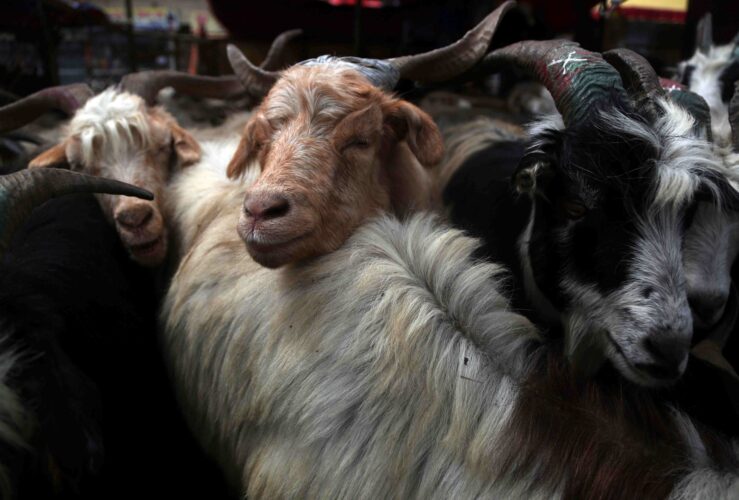Chinese scientists have successfully cloned two live Tibetan goats from cells harvested from living specimens from the Qinghai province of the Tibetan Plateau. The stated purpose of the cloning experiment was to find a way to prevent the unique livestock breed from “degenerating.”
“Two cloned goats have been born in Qinghai. The first-born weighed 3.4 kg and is healthy,” said chief cloning program researcher Su Jianmin. He noted that the research can help the Tibetan goat adapt to the rough plateau environment.
The program was conducted by a team from Northwest A&F University (short for Northwestern Agricultural and Forestry Science and Technology University), a public university based in the Yangling District of Xianyang, Shaaxni, China. The school is essentially administered by the Chinese Communist Party (CCP), as it is “directly under the Ministry of Education” and is part of the key public Chinese schools created by the “985 Project” and the “211 Project.”
Learn the benefits of becoming a Valuetainment Member and subscribe today!
The Tibetan goat is an essential source of wealth for the Qinghai-Xizang Plateau. According to a report from the outlet Xinhua, this research team has been cooperating with the Xining Municipal Animal Disease Prevention and Control Center since 2018 to test embryo engineering technology on Tibetan yaks and goats.
One researcher in the program, Zhang Chengtu, defended the study as a way to increase income for farmers and ensure “the good varieties” of Tibetan goats—a practice otherwise known as “eugenics.”
A researcher at the Institute of Animal Sciences of the Chinese Academy of Agricultural Sciences named Ma Yuehui said the successful experiment is a crucial breakthrough in cloning technology and said it will be highly important for China’s agricultural industry.
 Shane Devine is a writer covering politics, economics, and culture for Valuetainment. Follow Shane on X (Twitter).
Shane Devine is a writer covering politics, economics, and culture for Valuetainment. Follow Shane on X (Twitter).


















Add comment